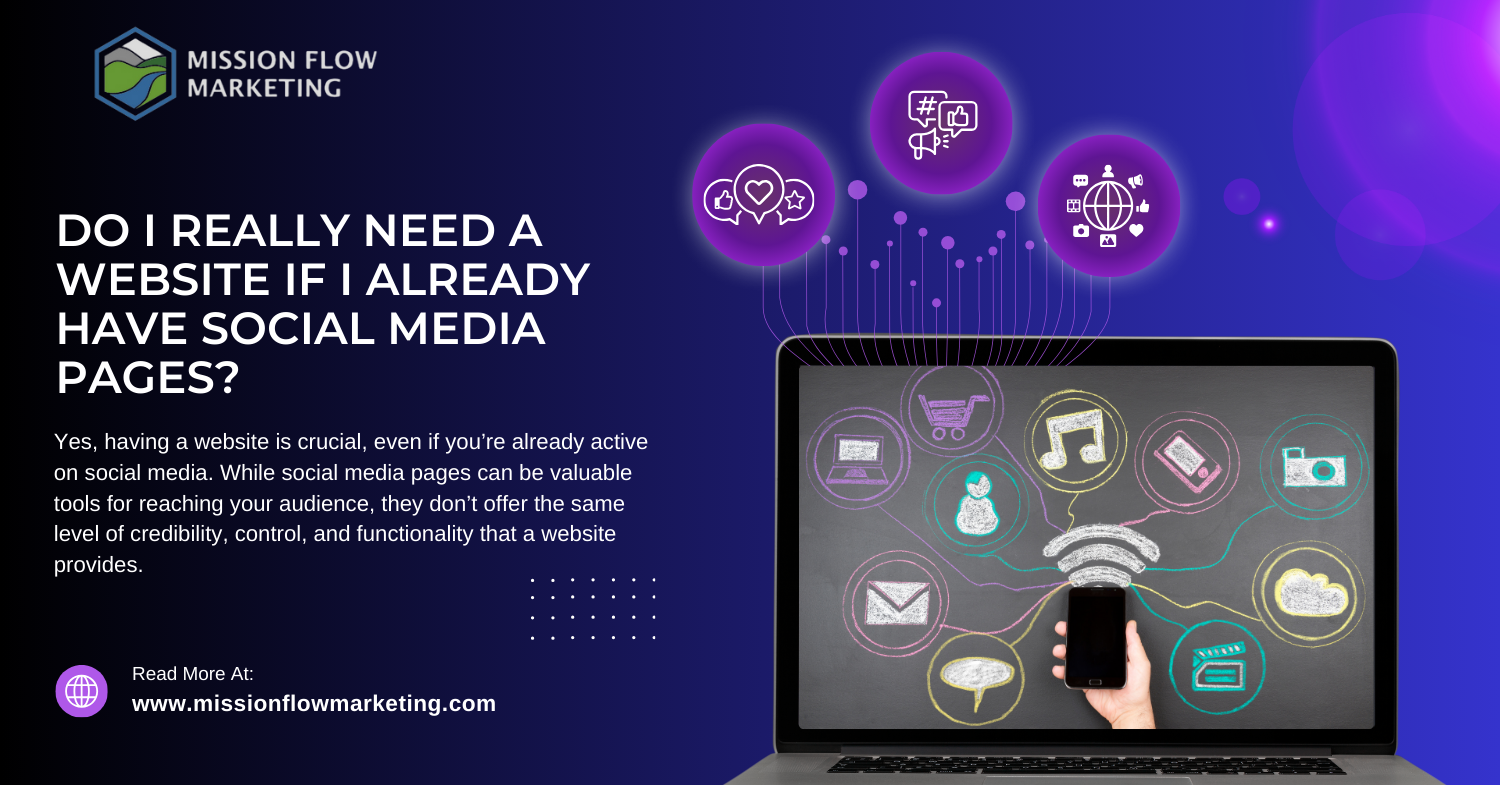
Yes, having a website is crucial, even if you’re already active on social media. While social media pages can be valuable tools for reaching your audience, they don’t offer the same level of credibility, control, and functionality that a website provides. Here are some compelling reasons why a website is an essential asset for your business:
Ultimately, a website is a foundational piece of your online presence and works synergistically with social media to support your business goals. At Mission Flow Marketing, we specialize in creating websites that not only look professional but are optimized for search engines, conversions, and user experience. Contact us today for a free consultation and discover how a website can enhance your business’s credibility and drive more conversions.